
Has the Government Decided to Hand Over Burnt Land to the Next Government?
The editorial of Vatan Emrooz emphasizes that the plan of Hassan Rouhani’s government to sell oil to Iranian people is irresponsible and will result in creating debts for the next government, as Rouhani’s second term will come to an end in 2021.
Hassan Rouhani’s recent promise of opening up the economy reminds people of promises he has made during the past seven years: “We will create such an economic prosperity that no one will be in need of subsidies,” or “we will make both the cycle of nuclear activities and the cycle of the economy work.”
The president’s promise of opening up the economy is like his previous ones, but it is probably his last promise. It seems that by opening up the economy, Rouhani is referring to selling oil through the stock market and oil futures contracts.
Despite all the assurances that the nuclear deal would be the key to all problems, one could see that it is not possible for the country to sell and export oil. None of Rouhani’s promises have come true. Now the government has decided to compensate for the decline in oil exports by selling oil to the Iranian people.
This plan has a lot of problems. Selling oil means a source of revenue for the government. According to the law, all government revenues that will later be spent must be ratified in the form of the budget bill. In other words, revenues and expenditures must be ratified by the Parliament.
It is unprecedented for any government or oil ministry to sell oil to whoever they want to and then spend the revenues however they want to. Now if people buy oil, who are they going to sell it to? Right now, the government cannot sell oil, but if people buy oil, then thousands of ordinary people will face problems in selling the selling oil. As such, many people will protest against the government.
It seems that the government intends to hand over burnt land to the next government. With selling oil now, obtaining people’s money now and promising to deliver oil in two years, the next government will have to pay the current government’s debts. This means burnt land for the 13th government.
Inexpert Words of the Officials
The editorial of Aftab Yazd explains why it is a mistake to blame families for child labor. This issue, like many other social problems, is rooted in poverty.
Recently, a welfare organization official announced that some families rent their children. Activists have talked about child labor for years – which is a clear reflection of the country’s social problems. But the officials have covered up this issue one way or another. The truth of the matter is that even if parents do not rent their children, the children have to work to earn money and pay for their families’ expenses.
The root cause of child labor goes back to the issue of migration to the cities, which has unleashed several economic problems. Most of those who migrate are in charge of their families and cannot find jobs for themselves in the new city they have migrated to. So they have to send their children to the labor market to make a living.
What is surprising is how the officials can talk as if parents are to be blamed for renting children. Even if so, is that the whole truth?
So far, the officials have tried to shirk their responsibility by suggesting different things, like saying that these children belong to this or that gang. Now everyone knows the truth about child labor; everyone knows that poverty is the main cause of child labor, and it creates other social problems as well. It is surprising that officials are trying to cover up an issue that is so evident.
It is obvious that if families can meet their expenses, they will never allow their children to work in furnaces or sell flowers all over the city. Instead of making such unsubstantiated claims, officials must think of ways for empowering families so that they can take their children out of the labor market and let them have a real childhood.
Poverty is the Cause of Social Problems
The editorial of Aftab Yazd focuses on how widespread poverty is making Iranian people do terrible things like renting their children.
Some say that children are rented by their own families to some profit-seeking individuals who use them on streets for making money – a terribly sad story. But, in fact, those who raise this issue are attempting to shirk their responsibilities. The officials must be held accountable for what is happening.
The pressure of poverty has forced families to rent their own children to make some money. Poverty and deprivation are increasing in Iran and no one is trying to find a solution. In fact, there is no such thing as fighting poverty: 10 percent of children work on the streets; the rest are living in the worst conditions.
The question is, why are these impoverished families that are forced to rent their children unable to take advantage of their own citizenship rights and stand on their own feet? Pressure and poverty are the causes of all these social problems, including renting children.
On the other hand, they keep announcing that the country is getting older and people are choosing not have families, as a result of which we will not have the necessary workforce in the future. The question is: How can these children run the country in future? Will these children be the social capital who will form the future of the country?
There is an obvious contradiction here. A society which suffers from excessive poverty and deprivation will not grow or develop. Despite these incidents, Iran is one of the richest countries in the world and there is an abundance of talent, capability and creativity in the country.
Nevertheless, day by day, the number of people living in slums increases and poverty becomes more widespread.
Opening up the Economy for the Government, not the People!
The editorial of Akhbar Sanat shows how the government’s new economic plan for selling oil to people is not going to solve the real problems people are suffering from in Iran.
One of the issues that Mr. Rouhani’s government created was that only short-terms solutions for the country’s problems were devised. Therefore, solutions were only proposed for the coming weeks or months in response to the issues at hand. In other words, his government has not tried to adopt mid- and long-term plans for solving economic problems and issues; it has not thought of any measures for creating any opening for the people.
The prospect of selling futures oil contracts to people which has been raised by the president and the government is one of these approaches which might solve the problems in the short term. Despite the fact that the government has claimed that selling futures oil contracts is an economic opportunity for collecting liquidity from society, the government’s solution is not an essential solution for solving economic problems or creating a brighter economic future.
Economic growth takes place when the country’s economy is channeled in the right path by relying on indigenous and local capacities. We can talk about long-term economic growth when all ministers and government institutions are closely adopting resistance economy policies. We can talk of economic growth when the government’s institutions and centers act in unison to reach a level of economic development which will result in the revitalisation of the economy.
We can talk about economic development only when the government has important issues like reforming banking and the taxation system on its agenda to back production. Otherwise, these are just temporary solutions to serious long-term problems. So they cannot be called economic opportunities or promises for solving the country’s cost of living and unemployment issues.

Iranian Officials React to UAE-Israel Deal
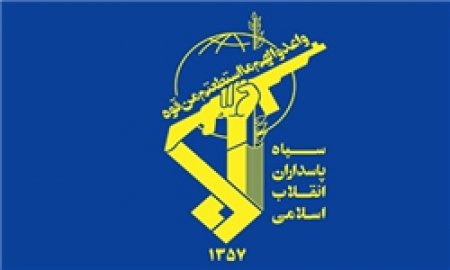
The Iranian president, the parliament speaker and the IRGC all reacted to the UAE-Israel deal, calling it “treason,” “dangerous,” “disgraceful.” And they have made threats against this neighboring country.
Iranian President Hassan Rouhani called the UAE measure “treason,” saying that “we hope the Emirates would stop making this mistake”. He also accused the UAE government of taking this measure of normalizing relations with Israel to “please” US President Trump. Rouhani also made threats against the UAE, saying that if the UAE brings Israel to the region, Iran will treat it differently.
Parliament Speaker Mohammad Bagher Ghalibaf in a tweet called the UAE’s measure “humiliating and a betraying the values of the Islamic community and the Palestinian cause.”
The IRGC issued a statement with regard to the UAE-Israel deal, calling it “historical stupidity” and “disgraceful.” The statement underlines that this measure will result in the “colonization of UAE” by Israel, and will create a “dangerous future” for the UAE leadership.
Chief of Staff of the Armed Forces Major General Bagheri warned that if anything happens in the Gulf and the national security of the Islamic Republic is put at risk, Iran will blame the UAE and will not tolerate it. He added that Iran’s approach towards this neighboring country will certainly change. Bagheri advised the UAE to retreat from this path before it is too late.
Meanwhile, a group of hardline students gathered in front of the UAE embassy in Tehran and burnt Israel’s flag, declaring that the UAE must pay for this measure.
The UAE-Israel deal is mediated by the United States. America says that Benjamin Netanyahu’s government has agreed not to annex the West Bank as part of this peace deal with the UAE. Bahrain and Egypt have welcomed the deal, while Turkey, Palestinian groups and Iran have strongly reacted to it.
“We Have Lied to People and now They Call us Liars,” Says Expediency Council Member
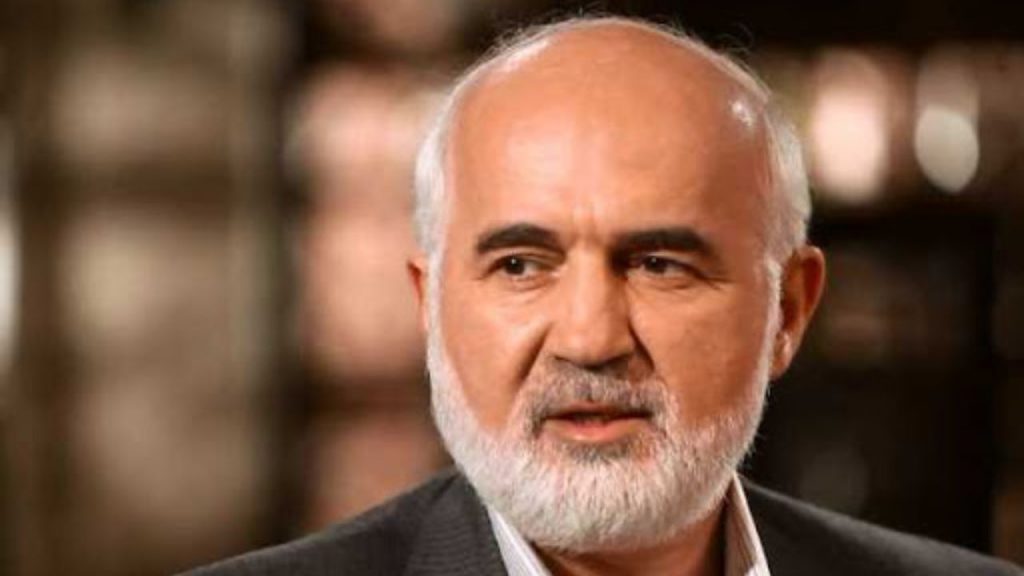
Ahmad Tavakoli, member of the Expediency Council, has said whatever we say people think we are lying. “We should accept that we have lied to people and now they have figured it out and call us liars.”
Tavakoli noted in an interview that when a large number of officials in a political system keep lying to people about the country’s issues and problems, people attribute it to all officials in that establishment and do not say only one is to blame.
He emphasized, “People’s trust in us has significantly decreased in comparison to the past.”
Referring to the way Iran treats political dissenters and its uneven stance on corruption, Tavakoli remarked that such issues have distanced us from Islam; “we have defamed Islam.”
This Expediency Council member also said he directly proposed to Ali Khamenei in 2018 that in order to implement transparency, he should start from his own office, then other organizations and institutions such as the Foundation of the Oppressed which cannot refuse to follow suit. However, Tavakoli added that his suggestion was not welcomed by the supreme leader’s office.
Iranian Oil Minister Admits Seized Tankers by US Were Carrying Iran’s Fuel
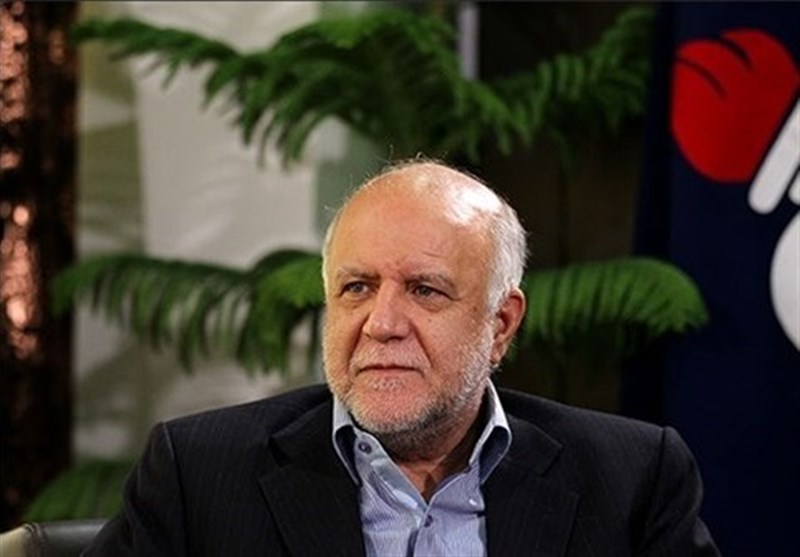
The United States has seized Iranian fuel headed for Venezuela aboard four tankers. For the first time, an Iranian official confirmed that the four ships seized by Americans were carrying Iran’s fuel to Venezuela.
Iranian Oil Minister Bijan Zanganeh said the recent shipments were sold to Venezuela and were paid for. Zanganeh clarified that the United States had seized the assets of Venezuela, not Iran.
This is the first time that an Iranian official has admitted that the shipments of fuel confiscated by the United States were Iranian cargo heading for Venezuela. Previously, Iranian officials had described the news of the seizure of the Iranian fuel tankers as “psychological warfare.”
In a tweet, Iranian ambassador to Venezuela had said that the ships did not belong to Iran and were not under the flag of Iran.
The US Justice Department confirmed that the shipments of these four ships were seized for violating US sanctions in free waters.
According to reports, these tankers were carrying 1.1 million barrels of Iranian fuel – worth $55 million – to Venezuela. US Secretary of State Mike Pompeo stated earlier that the seized Iranian fuel heading towards Venezuela can be used in paying compensation to “American victims of state terrorism.”
In recent months, Iran has sent five tankers carrying fuel to Venezuela which is suffering from a shortage of gasoline. Venezuela is also under US sanctions and the United States considers the shipment of fuel to this country by Iran as a violation of international sanctions.
US sources say that Venezuela pays for Iran’s fuel in gold.
Iran’s Armed Forces Warn Against Cyberattacks on Infrastructure
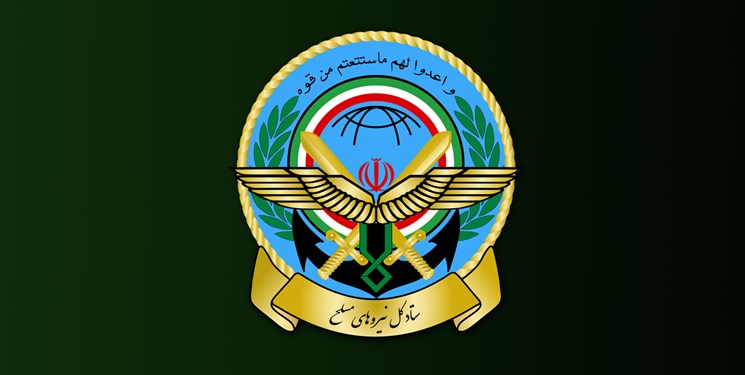
The General Staff of Iran’s Armed Forces has issued a statement warning against cyberattacks on the country’s “critical infrastructures” saying if such attacks become more intense, Iran’s armed forces “reserve the right to self-defense.”
This is the first time the General Staff of Iran’s Armed Forces has issued a detailed statement on cyber threats.
The General Staff of Iran’s Armed Forces – the country’s largest military structure – said in this statement that the armed forces will “powerfully” react to cyber threats against infrastructure if carried out by governments or individuals supported by governments.
The statement also underlined that the armed forces consider cyber operations which cause financial damage or hurt individuals as a “use of force” and “armed interference” and would respond to these attacks.
Iran’s armed forces will never start a war either physically or in cyberspace “but in case of violation of defined policies by a government, group or individuals who are supported, guided or controlled by a government, they reserve the right to react to those threats in any extent powerfully and with regrettable results,” said the statement.
Recently, there were reports of a cyberattack against Shahid Rajaee Port in southern Iran. American media had cited sources in Israel saying that the attack was in response to Iran’s cyberattack against a water supply network in an Israeli region.
In recent weeks, there was speculation about the explosion at Iran’s nuclear facilities in Natanz, attributing it to a cyber or physical attack.
Fars news agency, affiliated with the IRGC, recently quoted a senior military commander, saying that the cyber security in some official institutions is not robust enough.
Daughter of Prominent Lawyer Arrested After Her Mother Launches Hunger Strike in Jail
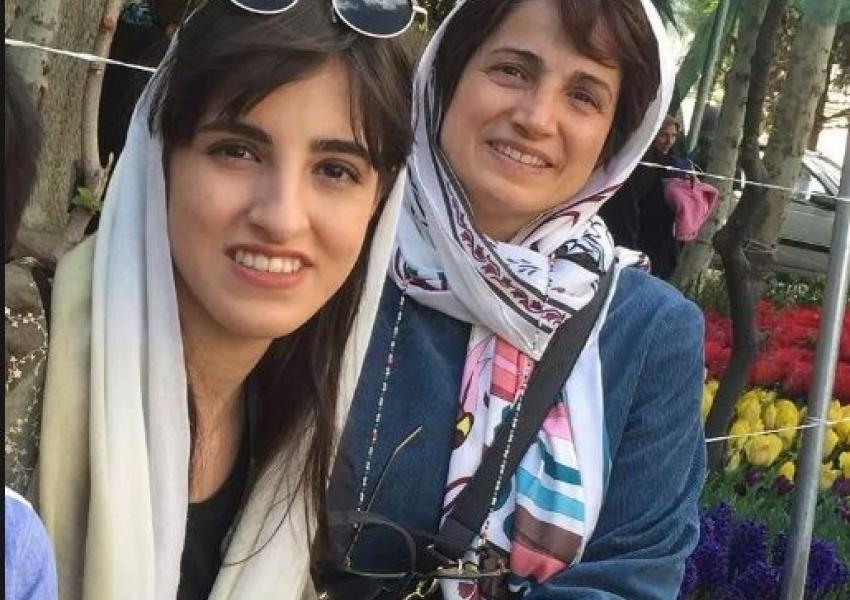
Mehraveh Khandan, the 20-year-old daughter of jailed lawyer and human rights defender Nasrin Sotoudeh, was arrested by five security forces at her home and transferred to Tehran’s Evin prison without any explanation. She was temporarily released on bail after a few hours.
Mehraveh’s arrest came after her mother staged a hunger strike in protest to the deplorable conditions endured by political prisoners. Sotoudeh’s family have been constantly under pressure for her human rights activities.
Her daughter has been barred from leaving Iran since she was 12 years old without any specific charges.
Nasrin Sotoudeh is serving her prison term at Tehran’s Evin prison on charges of “assembly and collusion against national security” and “propaganda activities against the establishment.” She has been sentenced to 33 years of imprisonment and 148 lashes. According to Iran’s Islamic law, this sentence carries a mandatory 12-year imprisonment.
